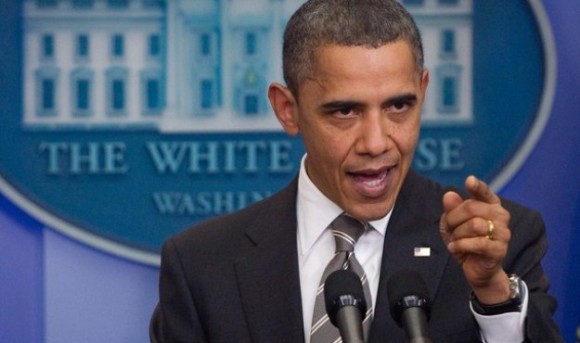
President Obama raised the ire of conservatives (including yours truly, initially) when he claimed he was not an ideologue. Reuters has more:
“I’m not a particularly ideological person,” he said, saying pragmatism was necessary to advance the values that were important to him.
Is he right? At first, I thought to myself, “Is he kidding?” The more I thought about it, however, I started thinking how it would be relatively easy for him to make that case.
Don’t get me wrong. The notion that Obama is a pragmatist is insane. President Obama is a hyper-partisan and his presidency is easily the most partisan of my lifetime.
Of course, all politics comes with a degree of partisanship. It’s absurd for anybody to argue “their side” doesn’t engage in partisan politics. But for some, the benefit of engaging in partisan politics is more important than looking at the big picture.
I say this because President Obama chooses to pursue short-term political advantages rather than look at the long-term consequences of his actions.
President Clinton was an ideologue. He loved the idea of big government. He believed big government could solve all the nation’s ills. But he was also a pragmatist, unlike President Obama. He would sacrifice short-term politics in order to benefit long-term. It’s the reason he went along with welfare reform and signed capital gains tax cuts into law.
Nothing shines the light on President Obama’s extreme partisanship more than the time during the government shutdown. As the Obamacare website was ready to roll out, the President was well aware (contrary to what he said, of course) of the problems with that site. He was well aware that people were going to lose their plans. He knew there were going to be problems. He could have done something to stave off the inevitable disaster.
But he chose instead to take the short-term political win. It worked for a couple of weeks. But now here we are, 45 days later and the President’s poll numbers are plunging.
Beyond attempting to play the short-term political game (he did the same thing with sequestration), the President has a penchant for doing two other things:
1. Making personal any differences he has with Republicans over policy (i.e., it’s all about him)
and
2. Attacking the motives of his ideological opponents
The former was highlighted this fall, first when he was doing one of his many campaign-style events over the impending budget battle:
Facing a showdown with congressional Republicans over funding government operations and raising the federal debt ceiling, Obama said his opponents are “not focused on you, they’re focused on politics, they’re focused on trying to mess with me.”
Yes, Mr. President, Republicans have different ideas over how we should spend taxpayer money because it’s going to “mess with you.”
Then there was the battle over Obamacare and the “I won, so shut up” argument:
“You don’t like a particular policy or a particular president? Then argue for your position. Go out there and win an election. Push to change it. But don’t break it. Don’t break what our predecessors spent over two centuries building. That’s not being faithful to what this country’s about.”
Seeing as how the President has referred to Congress as some pesky “impediment” to implementing his agenda, it shouldn’t surprise anybody that he thinks nothing of the men and women in Congress who also won.
With respect to motives, the President almost always assumes Republicans are acting in bad faith. Remember, “he won” so therefore any disagreement with the President on issues of policy can only mean Republicans don’t like him or they are hell bent on hurting people.
The Blaze has a list of five partisan things the President has said. Number one really stands out on the list:
But the larger point is, after all that we’ve been through these past five years, after all the work Americans like those standing behind me have done to come back from the depths of a crisis, are some of these folks really so beholden to one extreme wing of their party that they’re willing to tank the entire economy just because they can’t get their way on this issue? Are they really willing to hurt people just to score political points? I hope not.
The question is, as President Obama approaches the last years of his presidency, is there a chance he’ll be willing to change? Or is the “Chicago way” going to be how he conducts business until the end of 2016?
Time will tell.
